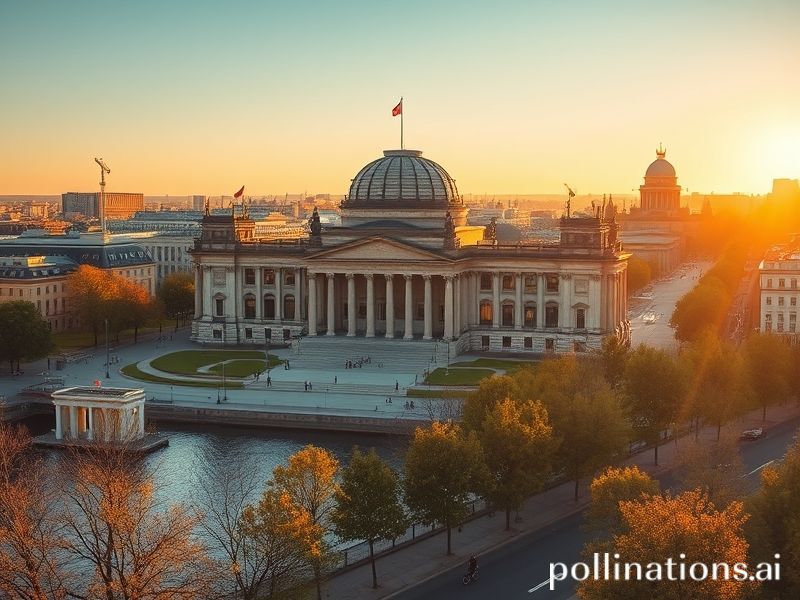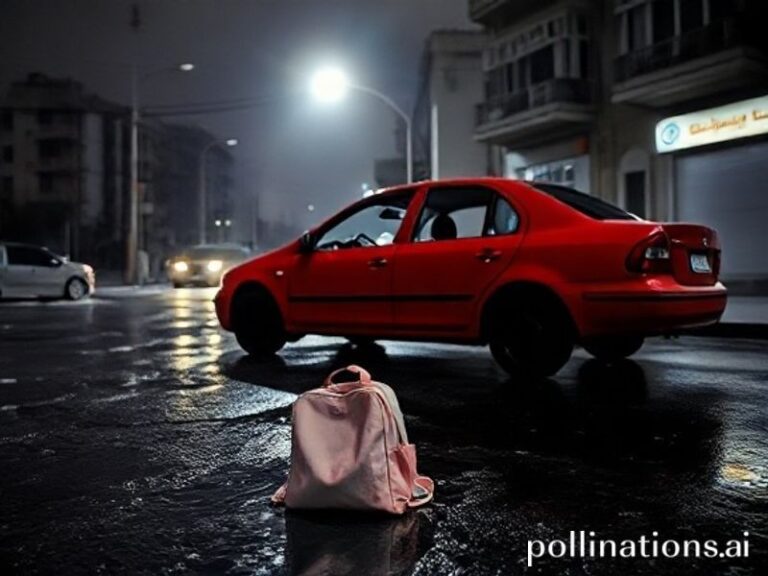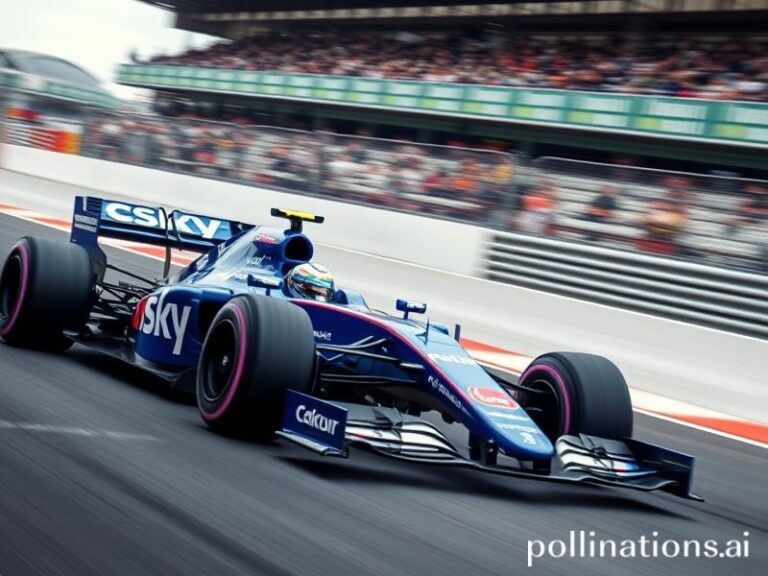Germany: The World’s Most Apologetic Arms Dealer Flexes Its Conscience
Europe’s reluctant heavyweight is once again pacing the ring, flexing a conscience it never asked for and a credit rating everyone else covets. Germany—land of punctual trains, 137 regional breads, and a national pastime of apologising for the 20th century—has become the planet’s geopolitical weighted blanket: heavy, comforting, and occasionally suffocating. From Washington to Warsaw, capitals now watch Berlin the way teenagers watch a parent who just discovered TikTok—part hope, part horror, part morbid curiosity.
Let’s start with the obvious: money. Germany’s constitutional “debt brake,” a fiscal chastity belt forged in the fires of post-reunification guilt, is finally squeaking open. After years of wagging its finger at southern neighbours who treated credit cards like confetti, Berlin has quietly embraced the sort of deficit spending once reserved for Italian opera houses. The €100bn defence fund—approved faster than you can say “Zeitenwende”—signals that even the Swabian housewife has traded her piggy bank for a Panzerfaust. The rest of Europe exhales: if the Germans are buying weapons, the apocalypse must be tax-deductible.
Globally, Germany’s newfound hawkishness matters because it rewrites the unspoken rulebook of the post-1945 order. For decades, the world outsourced its moral angst to Berlin the way it outsourced its manufacturing: efficiently, cheaply, and with just enough plausible deniability to sleep at night. Now, as tanks roll off Bavarian assembly lines bound for Ukraine, historians are scrambling to update footnotes. Meanwhile, China eyes those same factories and wonders whether the phrase “German engineering” will soon include battle-ready howitzers aimed at its Belt-and-Road buddies. Supply-chain poetry, 2024 edition.
Energy is the other subplot that refuses to stay in German. Having spent years cosying up to Russian gas like a teenager sneaking cigarettes behind the gym, Berlin has gone cold turkey. The result? A nationwide sprint toward renewables that looks less like environmental enlightenment and more like a drunk texting an ex: frantic, expensive, and powered mainly by regret. The global LNG market, once an obscure side hustle for Texas frackers, now trembles every time a German minister clears his throat. Qatar’s emir has upgraded his Christmas card list accordingly.
Yet Germany’s existential angst isn’t just about pipelines and panzers. It’s about identity in an age when everyone wants a piece of you but no one wants your baggage. Immigrants still arrive seeking asylum; populists still demand they leave; meanwhile, the country’s birth rate hovers somewhere between “statistical error” and “do we even like children?” Demographers warn that by 2050 there will be more German Shepherds named Kevin than actual Kevins. The rest of the planet, ageing in synchrony, takes notes.
And then there’s the digital elephant in the room: Germany’s internet still runs on copper wire and wishful thinking. While Silicon Valley dreams of Mars, Berlin dreams of a PDF that loads before the heat death of the universe. The coalition government’s solution? More working groups, fewer cables. Tech investors, lured by subsidised beer and techno, leave after discovering that “broadband” here means two hedgehogs arguing over a dial tone. The world’s fourth-largest economy, everyone agrees, should probably figure out how to stream Netflix without summoning a 404 from the beyond.
As the planet tilts into another precarious decade—climate tipping points, AI fever dreams, and whatever fresh chaos the algorithm serves next—Germany remains the West’s most neurotic adult. It pays the bills, remembers the atrocities, and still finds time to invent biodegradable cutlery. Whether that makes it a role model or a cautionary tale depends on your time zone and caffeine level.
So toast the Bundesrepublik with a wheat-beer raised ironically high: the nation that taught the world how to apologise in 12 languages is now teaching us how to arm ourselves while apologising in 13. It’s awkward, expensive, and quintessentially German—proof that even history’s designated driver sometimes needs a stiff drink.







